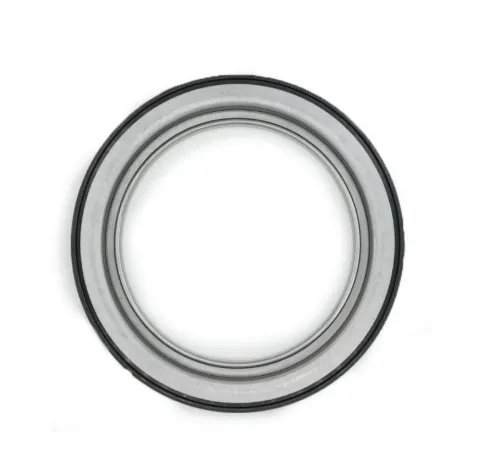Heavy-Duty Seals: The Backbone of Industrial and Everyday Protection
In a world where durability and protection are essential, heavy-duty seals serve as the unsung heroes across industries and homes alike. From protecting large garage doors to securing shipping containers, these rugged components are designed to withstand extreme conditions, resist wear and tear, and maintain long-term performance. This article explores the various types of heavy-duty seals, including their specific applications and key benefits.

The Versatility of Heavy-Duty Rubber and Door Seals
Among the most commonly used sealing materials, heavy-duty rubber seals offer excellent flexibility, weather resistance, and durability. They are engineered for harsh environments, including industrial machinery, outdoor installations, and high-pressure systems.
Heavy-duty rubber seals are often made from materials like EPDM, nitrile, silicone, and neoprene. These materials provide resistance to chemicals, UV rays, and extreme temperatures. Whether used in automotive systems or heavy equipment, these seals serve critical functions:
Preventing leaks of gases or liquids
Reducing vibration and noise
Providing thermal insulation
Blocking out dust and moisture
Similarly, heavy-duty door seals are vital for maintaining energy efficiency and security in both commercial and residential spaces. These seals create tight closures that:
Block drafts and noise
Improve climate control
Prevent water intrusion
Keep out insects and dirt
They’re commonly used on exterior doors, loading docks, and commercial entrances where protection from the elements is key. Materials like rubber, silicone, and high-density foam make them suitable for high-traffic areas and challenging weather conditions.
Reliable Protection with Heavy-Duty Garage Door Seals
Heavy-duty garage door seals are specifically designed to handle large, often industrial-sized doors that must seal tightly against concrete floors, uneven surfaces, or exposure to the elements. A proper seal improves insulation, enhances security, and prevents pests from entering.
Key characteristics of heavy-duty garage door seals include:
Thick rubber or vinyl construction for added durability
Resistance to cracking, even in freezing temperatures
Compatibility with various garage door types (sectional, roll-up, tilt-up)
Ability to compress and conform to uneven floor surfaces
These seals are commonly used in warehouses, auto shops, and commercial garages where exposure to dust, debris, and fluctuating temperatures is a constant challenge. In colder climates, they also play a role in preventing snow, ice, and rainwater from seeping indoors.
Proper installation and periodic maintenance are important to maximize their performance and lifespan. Cleaning the seal regularly and checking for wear or compression loss ensures optimal performance year-round.
Secure and Tamper-Evident Solutions: Heavy-Duty Plastic Seals
When security is a concern, heavy-duty plastic seals offer a cost-effective and tamper-evident solution for supply chain, logistics, and inventory management. These seals are used to detect unauthorized access to containers, doors, equipment, and more.
Types of heavy-duty plastic seals include:
Pull-tight seals: Adjustable and used for items with varying sizes
Fixed-length seals: Provide a consistent seal length and are easier to inspect
Bolt seals: Designed for securing shipping containers and truck doors
Made from durable plastics like polypropylene or nylon, these seals often feature locking mechanisms that break when tampered with, making them ideal for one-time use in sensitive areas. Some advanced versions are barcoded or RFID-enabled for tracking and inventory control.
Industries that rely heavily on heavy-duty plastic seals include:
Transportation and freight
Utilities and energy
Food and beverage
Banking and cash handling
Their simplicity and strength make them a first line of defense against tampering, theft, or contamination in transit.
Choosing the Right Seal for the Job
Selecting the appropriate heavy-duty seal depends on several factors:
Environment: Will the seal face chemicals, UV exposure, or freezing temperatures?
Başvuru: Is it sealing a door, container, or hydraulic system?
Material compatibility: Does the seal material match the surface and conditions?
Regulatory standards: Are there fire, safety, or hygiene regulations involved?
High-quality heavy-duty seals are usually tested to meet industry standards for compression, tensile strength, aging resistance, and thermal performance. Manufacturers may also offer custom-cut seals to fit specific dimensions and tolerances.
Maintenance and inspection play a critical role in extending seal life. For example, keeping a heavy-duty door seal free from dirt or debris can help it compress better, while inspecting a heavy-duty plastic seal for tampering can protect inventory from loss or damage.
Whether you're sealing a garage door against a snowstorm, protecting a warehouse entry, or safeguarding a shipping container, the right heavy-duty seal can make all the difference. With options like heavy-duty rubber seals, heavy-duty door seals, heavy-duty garage door seals, and heavy-duty plastic seals, there’s a solution for nearly every industrial or commercial need. Investing in quality seals not only protects your assets but also boosts safety, efficiency, and peace of mind.
-
Seal 12x20x5: Precision Radial Shaft Seals for Industrial Reliability
Haberler Nov.24,2025
-
Seal 12x18x5: Essential Guide to Specifications, Applications & Vendors
Haberler Nov.24,2025
-
Understanding Seal 12 20 5: Applications, Specifications & Industry Insights
Haberler Nov.23,2025
-
Durable Oil Seal 85x110x12 – Reliable Sealing Solutions for Industry
Haberler Nov.23,2025
-
Durable and Precise Oil Seal 75x95x10 for Efficient Machinery | YJM Seal
Haberler Nov.22,2025
-
Durable Oil Seal 75x100x10 for Reliable Industrial Performance | YJM Seal
Haberler Nov.22,2025
-
High-Quality Oil Seal 65x90x10 | Durable & Reliable Sealing Solutions
Haberler Nov.22,2025
Ürün kategorileri















